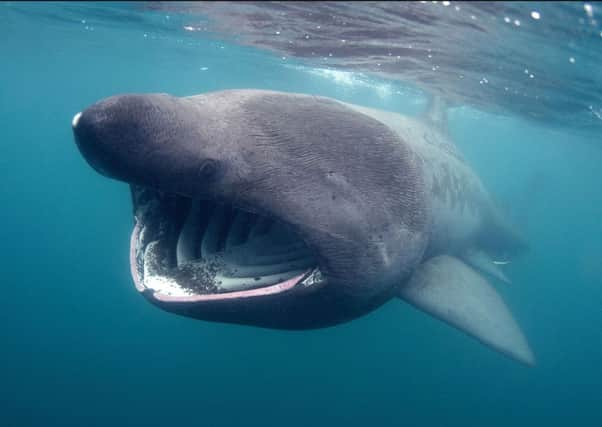Call for waters off Yorkshire coast to be given protected status


The Wildlife Trusts have identified 17 areas which are used by “megafauna” – large wildlife including porpoises, dolphins, whales and basking sharks.
The locations include part of the North Sea stretching from Bridlington to Norfolk, which conservationists have claimed is notable for harbour porpoises. The area includes Silver Pit, a valley in the bed of the North Sea east of Spurn Point near Hull.
Advertisement
Hide AdAdvertisement
Hide AdThe 17 sites are places where megafauna gather to feed, breed and raise their young, the Wildlife Trusts said. The UK’s waters are home to 29 species of whale, dolphin, porpoise and the world’s second largest shark, the basking shark.
Along with harbour porpoises and common and bottlenose dolphins, species including humpback whales, killer whales and sperm whales are seen in the UK’s waters. But these species, which are long-lived and reproduce only slowly, are “acutely vulnerable” to pollution, commercial fishing and other human activities, the Wildlife Trusts claimed.
The Wildlife Trusts’ head of living seas, Joan Edwards, said: “Many people are surprised to discover that in the waters surrounding our shores you could encounter 29 different species of whale, dolphin and porpoise and the second largest shark in the world – the basking shark.
“However there’s an urgent need to create protected areas at sea for our ocean giants and ensure a network of sites to safeguard these species for generations to come. The UK has made huge advances in marine conservation in recent years but there is still a significant job to do. Our marine megafauna – whales, dolphins, porpoises and basking sharks –are still under threat.
Advertisement
Hide AdAdvertisement
Hide Ad“Many are suffering from the impacts, whether direct or indirect, increased boat traffic, marine developments and the more persistent effects of pollution.”
She said not all of the impacts could be tackled through protected areas but “by designating areas of the sea which are known hotspots, we can provide safe havens for these species and some impacts can be limited or removed altogether.”
The Government is creating “marine protected areas” to secure the future of habitats and wildlife on the seabed, but the trusts are concerned that there are no protected areas for dolphins, whales and sharks in England and only one in Wales.
They are calling for the series of “hotspots” – highly productive areas which produce plenty of food – to be protected especially for whales, basking sharks and dolphins, to secure the “missing link” in marine conservation in English and Welsh waters.
Advertisement
Hide AdAdvertisement
Hide AdThe trusts propose creating new marine protected areas, extending the boundaries of ones that are already proposed, adding protection of dolphin, whale and shark species and undertaking more research to establish the importance of sites.
The proposals include creating a new marine protected area in the south west part of Lyme Bay, which is an important foraging area for white-beaked dolphins.
They also include creating a protected area for common dolphins in the north of Celtic Deep, off the Welsh coast. Areas in Cardigan Bay, as well as off the Northumberland coast and the southern tip of the Cornish coast are all among the locations that the Wildlife Trusts want to see protected for dolphins, whales and basking sharks.